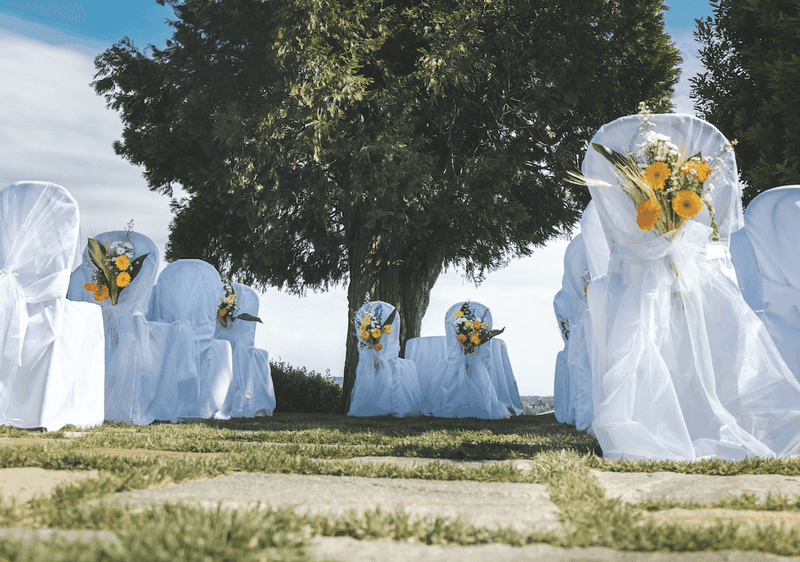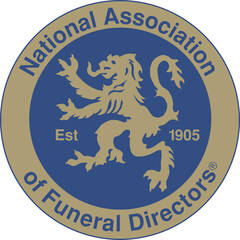Memorial events and celebrations
This guide has been created to help you hold a Memorial Service, Celebration of Life Ceremony or Service of Thanksgiving and Remembrance.
If ashes are not being interred a memorial or celebration ceremony can still be held. We will be pleased to support you in putting arrangements in place for either event.
When it comes to planning a memorial service, you may need to:
- Choose a location
- Think about the type of memorial service you would like
- Decide who will lead the service
- Decide if you would like to include others in the service
- Invite those you would like to attend
- Create a space for memories to be shared
- Decide on the order of service
- Think about the ashes container
Other memorial tributes are available.
Things to think about
The first rule is that there are no rules! It can be big and bold, small and intimate or somewhere between the two. More than anything, this is your opportunity to really celebrate and honour the life of your loved one. The service can be held in a place of worship, but feel free to think outside of the usual rituals associated with a funeral.
A range of venues is available. Some of our funeral homes have rooms where a ceremony can be held. Places of worship are available for religious services. Other venues such as cemetery chapels, local halls and hotels might also be considered. Our team has knowledge of the options and can discuss with you how to select a suitable space.
Tip: If you plan to use private land, you must get the owner’s permission. Always have a wet weather plan if you are going to be outdoors.

Have a seat
What will you need for your memorial event? Most indoor venues will have chairs and tables, access to catering facilities and a bar. However if your memorial is outdoors, for example at the beach or park, then think about what you will need to comfortably accommodate all of your guests.
Tip: Our colleagues are well equipped in supporting you in planning your memorial event. As well as the ceremony itself we can assist you with supporting ideas such as displays, invitations, publicising the event or sourcing specific needs such as AV equipment or musicians.

A leading light and a guiding hand
Most ceremonies, whether formal or informal, will have someone to lead the way and officiate. It doesn’t have to be a minister or celebrant. You can do this yourself or it can be a trusted friend or family member. If you would prefer, we can identify a celebrant who we think will suit you and the ceremony you have in mind. We can guide you on structure and content.
Tip: Speaking publicly while managing emotions can feel a little overwhelming. If leading the ceremony yourself or having a trusted family member or friend, make sure the person understands the role you want them to perform.

Inclusion through action
Getting everyone involved can bring a greater depth of meaning. Be that from reading a poem or singing together to lighting candles or planting flowers, let’s discuss who could join in and what they might do to reflect and celebrate the life of the person.
Tip: Share your ceremony idea when inviting guests so that they have time to prepare.

Letting people know
You can use traditional options such as newspapers. Social media and formal invitations are also available. We can also work with you through clubs, societies and work the person may have been involved in to advise people who were unable to attend the funeral know that they are now welcome at a memorial event.
Tip: You can continue to use our client portal to let people know the details.

Sharing stories
Encourage your guests to share their own stories and memories. Record them in a memory book or collect them in a jar. Every life is unique – every life has a story to tell. You were part of this person’s story and so were many others.
Tip: Create a space within the ceremony for stories to be told.

Putting people at ease
Anticipating what’s next can bring about nerves. To avoid this, help your guests by letting them know what is going to happen at your ceremony. This doesn’t have to be a printed order of service – it might just be a brief explanation right at the beginning.
Tip: An itinerary or outline printed on a piece of paper on a pin board or easel at the entrance is a good way of ensuring that all guests get to see what will be happening

What should the ashes be held in?
It may be that you choose a simple container to hold the ashes, or you might want something to reflect the life and interests of the person who has died. You might even choose something that matches the original coffin, or something temporary to scatter the ashes from. Our team will know the regulations for the place of burial and support you in your selection.
Tip: The ashes container should be sturdy to hold the ashes safely inside.

How should the ashes travel?
This can reflect the style of event you have in mind. We can take the ashes quietly to the venue for you. Alternatively, our purpose-built ashes bier sits splendidly on one of our hearses. In this way a formal cortège might travel from your house, with limousines provided for the mourners.
What to do now?
Contact our funeral home and arrange to see us. Our team will work with you to make your plans into a reality. We will also prepare and submit any necessary paperwork for you. Our Funeral Director on the day will conduct the arrangements to ensure a smooth and fitting tribute is provided. As your local family funeral directors, we will do everything we can to make your loved one’s ceremony as special and as memorable as possible.
Memorial Events FAQs
-
What is a memorial service?
A funeral memorial service, sometimes also referred to as a celebration of life or service of thanksgiving, is held some time after a funeral service following the death of a loved one. A memorial service can be held on a specific date, perhaps one that holds special meaning such as the birthday of the person who has died or on the anniversary of their death.
A memorial service, celebration of life or service of thanksgiving, is an opportunity for friends and family to pay their respects after a loved one has died. They can be religious or non-religious, it can be formal or informal, the possibilities are endless. To help get you started, it may be helpful to think about the culture of the family and any preferences or wishes held by the person who has died when deciding on what type of memorial service to hold.
-
What happens at a memorial service?
There are no rules that must be followed when organising a memorial service. For some, simply gathering friends and family members to mark the life of the person who has died is sufficient, others take comfort in providing some structure to the day. If you’re looking to provide some structure to your memorial service, including rituals such as readings of hymns or poems, collective singing or listening to music can form an order of service. Along with other elements such as having someone lead the service by saying a few words about the person who died.
A memorial service can be held in a place of worship, but there are a wealth of choices and options available to choose from outside of the usual rituals associated with a traditional funeral. The major difference between a funeral and memorial service is the atmosphere.
Memorial ceremonies are typically scheduled some time after the funeral service, allowing time for family and friends to reflect on recent events and on the relationship and the experiences they had with the person who died. As such, often a key part of the service is time for recollections, stories and memories to be shared. Outside of the confines of the funeral service, the memorial service provides the opportunity, space and time to honour the life of your loved one.
-
What is a celebration of life service?
As with a memorial service, a celebration of life is held some time after a funeral service following the death of a loved one. It can also be referred to as a memorial service or service of thanksgiving.
-
What happens at a celebration of life service?
A celebration of life is an opportunity to celebrate, remember and honour the life of your loved one. A celebration of life is typically more upbeat and less formal than a traditional funeral, with the focus being on celebrating the life of the person who has died rather than mourning.
Unlike a funeral service, the body of the person who has died is not present, but you may choose to have their ashes present; perhaps the celebration of life for your loved one is an opportunity to scatter their ashes or have them interred?
The bottom line is that the service can be as big and bold or as small and intimate as you like.
-
What should a memorial service include?
Our experienced colleagues are here to support you in putting arrangements in place and can guide you through the process. It is often useful to start with a checklist to help you organise your thoughts, here are some helpful pointers to get you started:
Choose a location
Think about the type of memorial service you would like i.e. religious or not
Decide on who will lead; i.e. a celebrant, a friend etc
Decide if you would like to include others in the service
Invite those you would like to attend, would you like an intimate gathering or to open up to wider family and friends
Create a space for memories to be shared; this could be collecting photos to share in a montage on the day, or asking for messages to be sent to create a memory book
Decide on the order of service; do you need one, what might it look like – we can help with this
Think about the ashes container; will you want to scatter the ashes, have a keepsake locket made for example
Further suggestions on what happens at a memorial service and things to think about can be found in our Memorial events and celebrations guide.
-
How do you make a memorial service special?
There are various ways you can make a memorial service special or unique; from asking a friend or family member to lead the service, to creating photo or condolence tributes to be shared on the day? Perhaps you could get loved ones together to paint a collaborative mural, or arrange for the attendees to participate in a favourite hobby or pastime that was enjoyed by your loved one, such as gardening together or playing sports; the possibilities are endless.
These are just some ideas, but as always our colleagues are on hand to guide and support you throughout.
Things to consider
Here is a list of things to consider when arranging a memorial event or celebration.
-
Have I chosen my location?
-
Do I know what type of memorial service I would like?
-
Who is leading the service?
-
Will others be involved in the service?
-
How will I invite others to attend?
-
Creating a space for memories to be shared
-
What is the order will the service follow?
-
Do I need a container for the ashes?





